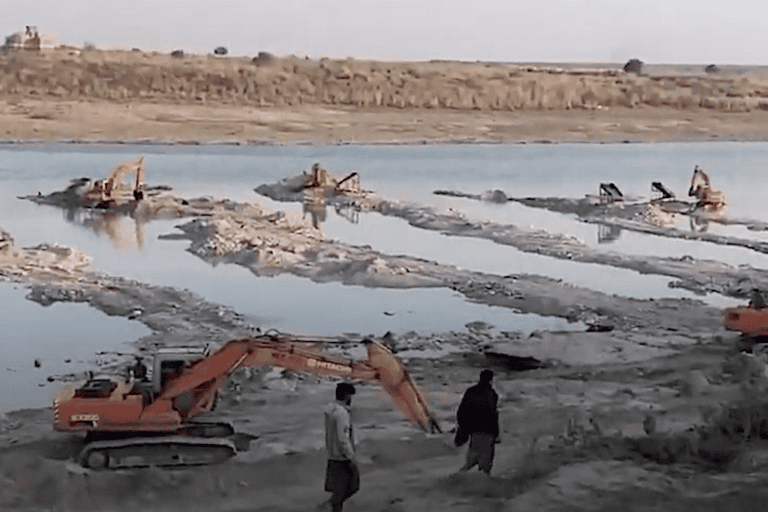The gold blocks auction in Khyber Pakhtunkhwa has sparked major controversy after the National Accountability Bureau (NAB) raised strong objections. NAB has warned that the flawed process has caused losses of trillions to the province and exposed widespread corruption during gold exploration along the Indus and Kabul rivers.
According to official provincial documents, NAB claims leaseholders are openly subletting contracts and charging between Rs500,000 and Rs700,000 per excavator every week. Their weekly earnings are estimated at Rs750 million to Rs1 billion. This translates into trillions of rupees, while the government collects only a fraction of the revenue.
Chief Minister Ali Amin Gandapur defended his government’s role in the auction of gold blocks. He told the media that his administration had set higher base prices. A single block previously sold for Rs650 million, but under his leadership, the minimum price was fixed at Rs1.10 billion. Four blocks were sold for about Rs4.6 billion for a ten-year lease. The CM pointed out that for two decades, no auction had taken place and illegal mining had flourished.
The chief minister added that advertisements were issued multiple times, but bids remained low. Eventually, the auction was held at higher rates. He also questioned why the study on gold reserves, which started in 2023, was suddenly stopped and who was behind that decision. Gandapur stressed that NAB had been informed, and one of its officers was present during the auction. He insisted that all legal formalities were followed and operations are underway to curb illegal mining.
However, documents reveal troubling findings. In a high-level meeting on August 7 at NAB headquarters—attended by KP’s Chief Secretary and Secretary Minerals—the inquiry disclosed that the reserve price of placer gold blocks was deliberately miscalculated. The inquiry also showed that the 2015 study by the National Centre of Excellence in Geology, Peshawar, which recorded gold reserves from 0.21 to 44.15 grams per ton, was ignored. Instead of implementing KP Auction Rules 2022, officials interfered to benefit selected bidders.
Another alarming disclosure is that the geological mapping project launched in 2022 to estimate mineral resources was halted in November 2023 only in the case of placer gold. This move has raised suspicions of deliberate concealment. Earlier auctions had also collapsed due to weak publicity that kept international investors away.
Documents also note that under auction rules, if an agreement is not finalized within 14 days, the offer must be withdrawn. But despite long delays, contracts and allotment letters were still issued. Shockingly, mining continued in November 2024 even though the Peshawar High Court had issued a stay order.
The NAB report has also highlighted massive violations by leaseholders. They failed to conduct environmental assessments, avoided NOCs from the Environmental Protection Agency, and did not set up processing plants. Leaseholders ignored exploitation schemes, did not file production or sales data, and used mercury in unsafe ways. Unskilled laborers were also hired illegally.
According to NAB estimates, more than 1,500 excavators are operating illegally in gold-rich areas. Leaseholders are charging half a million to seven hundred thousand rupees per excavator every week. Their total earnings reach Rs750 million to Rs1.05 billion per week, while the government is getting a mere token. NAB maintains that trillions have already been looted from the province in the name of the gold blocks auction.

